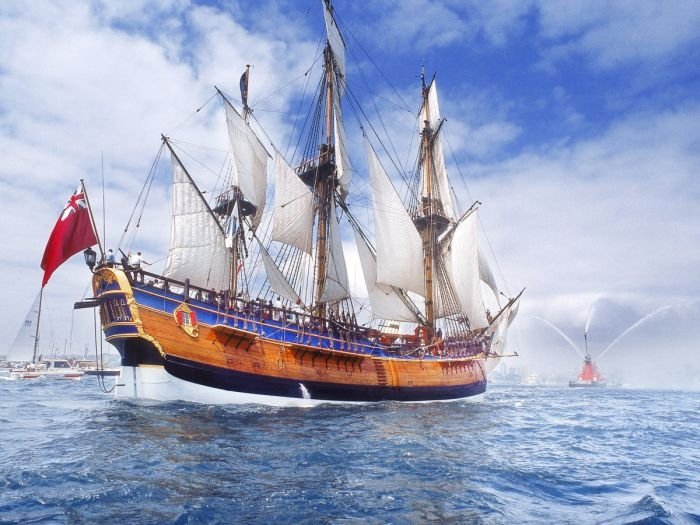|
|
Schooner Sailing Vessel
|
The schooner sail-plan has two or more masts with the forward mast being shorter or the same height as the rear masts. Most traditionally rigged schooners are gaff rigged, sometimes carrying a square topsail on the foremast and, occasionally, a square fore-course (together with the gaff foresail). Schooners carrying square sails are called square-topsail schooners.
A staysail schooner has no foresail, but instead carries a main staysail between the masts in addition to the fore staysail ahead the foremast. A staysail or gaff topsail schooner may carry a fisherman's staysail (a four-sided fore-and-aft sail) above the main staysail or foresail, or a triangular mule. Multi-masted staysail schooners usually carried a mule above each stay sail except the fore staysail. Gaff-rigged schooners generally carry a triangular fore-and-aft topsail above the gaff sail on the main topmast and sometimes also on the fore topmast, called a gaff-topsail schooner. A gaff-rigged schooner that is not set up to carry one or more gaff topsails is sometimes termed a "bare-headed" or "bald-headed" schooner. A schooner with no bowsprit is known as a "knockabout" schooner. A "cat-rigged" schooner not only has no bowsprit but has no headsails, and has the foremast set as far forward as possible.
The schooner may be distinguished from the ketch by the placement the mainsail. On the ketch, the mainsail is flown from the most forward mast; thus it is the main-mast, and the other mast is the mizzen-mast. A two-masted schooner has the mainsail on the aft mast, and therefore the other mast is the fore-mast.
|
|









